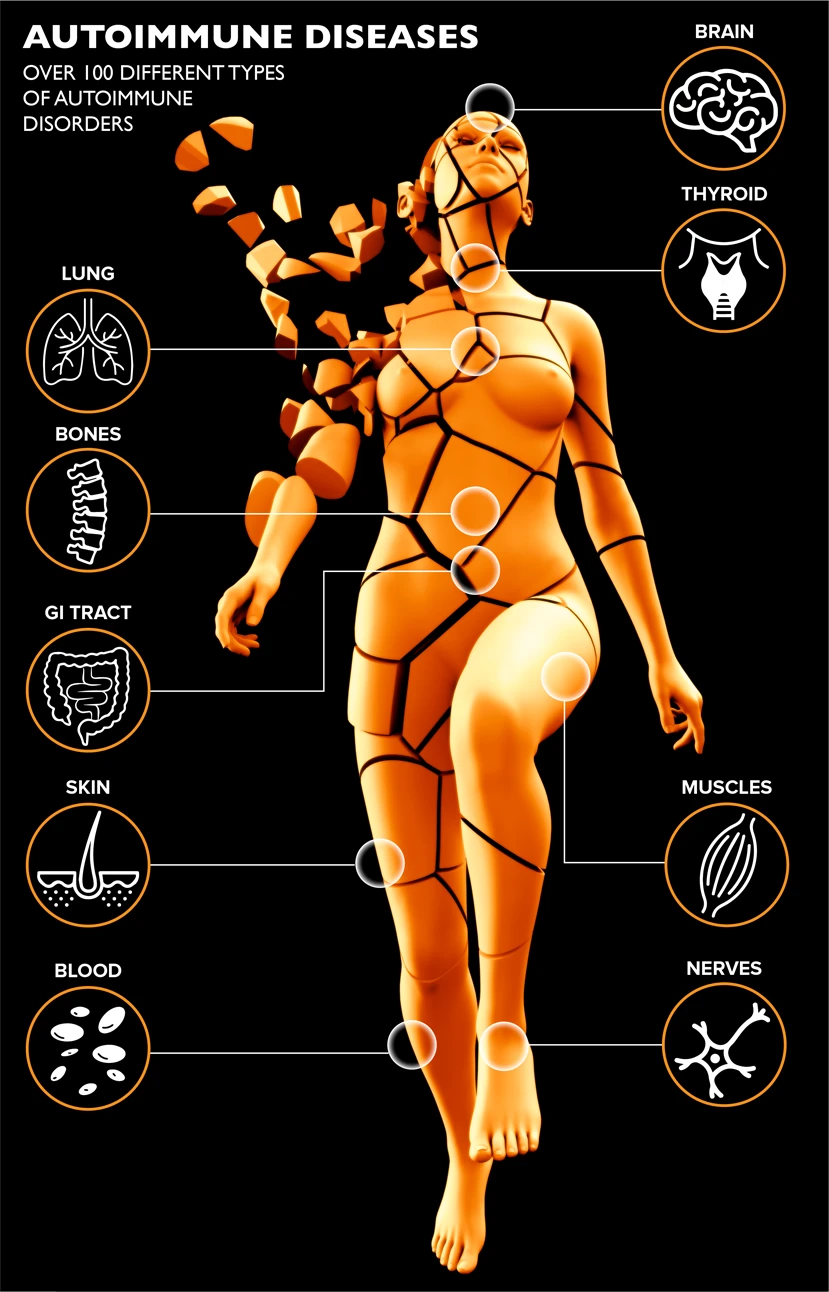Introduction: What is an autoimmune disease? A Growing Epidemic
Our immune system is our guardian that protects us from various external pathogens such as bacteria, viruses, parasites, fungi, and chemicals. It can tell that the germs aren't part of us and it proceeds to destroy them. Sometimes, our immune system “goes rogue'' and starts attacking our own healthy cells and organ systems. This abnormal process is called autoimmune disease (immune system attacking self). There are more than 80 types of autoimmune diseases that can affect almost any part of our body such as our skin, hair, liver, joints, nervous, gastrointestinal and endocrine systems.
Autoimmune disease affects hundreds of millions of people worldwide and the numbers are relentlessly going up. Almost 80% of those affected with autoimmune disease are women. Furthermore, the diagnosis of one autoimmune condition increases the likelihood of diagnosing a second (and a third) autoimmune disease. Standard treatment approaches involve anti-inflammatory and immunosuppressive medications. While these medications are often effective in suppressing symptoms and can be lifesaving in the short term, they can be expensive and have serious side effects long term. Some patients suffer from a very limited quality of life even with treatment.
For a patient with a history of chronic inflammation, a diet laden with inflammatory triggers can play a major role in provoking autoimmune/inflammatory disease or its exacerbation. In addition, psychological stressors or/and poor sleep hygiene could act as an impetus for either developing or flaring an autoimmune disease.







